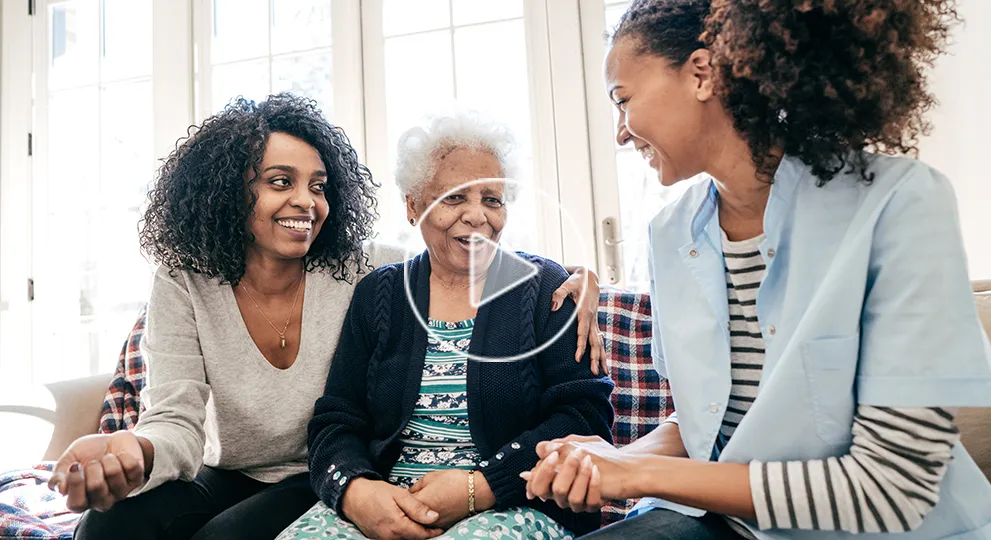Life with Acute Myeloid Leukemia (AML): Stories from patients and their family members
Life with Acute Myeloid Leukemia (AML): Stories from patients and their family members
[Title on screen: Living with AML]
[Narrator] Every patient that we spoke to told us about feeling tired, fatigued, or like they didn’t have as much energy as they used to. However, just to remind you, most of these patients had never been on treatment, so your experience may be different.
Some patients also told us that they had pain, or that they felt weak:
[Patient 1, Male, 68+] I remember being extremely tired, and I realize I'm an old guy anyway, but I thought…I'm a little bit more tired than I should be after I've had a good night's rest. But like I said before, I didn't really feel sick, you know…
[Narrator] These symptoms made it hard for patients to do everything that they used to do.
[Patient 2; Female, 68+] I tried to have my, normal life as much as I could, to go out go for shopping, go to movies here and there…Unfortunately I did not have that much energy, so I'd rather mostly stay at home.
[Patient 1; Male, 68+] If I am getting tired…I need to go, and not to push myself, you know. The days of pushing yourself kind of gone.
[Narrator] The family members we spoke to also told us about how the diagnosis had changed their lives, leading them to focus more on the patient:
[Relative 2; Female, 60s] Of course we don’t do the things that we have normally been doing…He misses his little private time that he had with himself…I have to check on him, see how he's doing.
[Relative 1; Male, mid-40s] I cook. I clean. I pay the bills. I exercise with her. I take her to eat. I take her to appointments…being there emotionally for her, sitting there watching TV with her, putting my hands on her leg. I mean that is what I think a family member does. That's not care giving. That's what you're intended to do.
[Narrator] But many of the patients we spoke to were still able to spend time with their family and do some of their hobbies, like walking, reading, gardening, cooking, and watching TV.
[Patient 1; Male, 68+] I made it out to my grandson's birthday party…it was nice to be able to be there and interact with everyone and meet some of his friends…so that was nice.
[Patient 2; Female, 68+] I mentioned, [my daughter and I] do our daily morning walks and then, you know, every Monday we go out and have dinner…that's like our special day
[Patient 1; Male, 68+] I love being in the kitchen and I love that I can prepare a meal that will feed my family, and it's a good usually healthy balanced meal.
[Patient 2; Female, 68+] My husband tries to get me out of the house in fresh air and sunlight, as much as possible, and I appreciate that…it’s always lovely to have the fresh air.
[Loriana] Like those patients, I too had to make adjustments in my life because of my symptoms.
For example because of my fatigue and the side effects of treatment I went from being a runner to a walker. But it didn’t mean I gave up my fitness goals. I just changed them.
I stayed true to a clean eating diet that focused on unprocessed anti-inflammatory foods.
I knew staying fit and eating right would help me meet the medicine halfway and stay strong. Taking these steps can help with depression and anxiety and help you stay as mobile and independent as possible throughout your journey.
I also began meditating, I added in some yoga and got myself to see a therapist to mentally cope and navigate the journey. This isn’t just a physical fight; it’s a mental one.
And getting a pit crew or team of people, friends, and healthcare professionals alike can help you physically AND mentally; it made a difference in how I managed my journey.
Ask your doctor about the “psycho-oncology” side of this journey.
It works. It helps….And it’s okay to ask for help.










